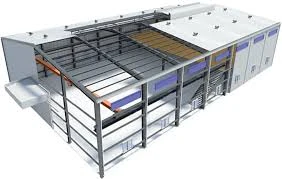- Afrikaans
- Albanian
- Amharic
- Arabic
- Armenian
- Azerbaijani
- Basque
- Belarusian
- Bengali
- Bosnian
- Bulgarian
- Catalan
- Cebuano
- Corsican
- Croatian
- Czech
- Danish
- Dutch
- English
- Esperanto
- Estonian
- Finnish
- French
- Frisian
- Galician
- Georgian
- German
- Greek
- Gujarati
- Haitian Creole
- hausa
- hawaiian
- Hebrew
- Hindi
- Miao
- Hungarian
- Icelandic
- igbo
- Indonesian
- irish
- Italian
- Japanese
- Javanese
- Kannada
- kazakh
- Khmer
- Rwandese
- Korean
- Kurdish
- Kyrgyz
- Lao
- Latin
- Latvian
- Lithuanian
- Luxembourgish
- Macedonian
- Malgashi
- Malay
- Malayalam
- Maltese
- Maori
- Marathi
- Mongolian
- Myanmar
- Nepali
- Norwegian
- Norwegian
- Occitan
- Pashto
- Persian
- Polish
- Portuguese
- Punjabi
- Romanian
- Russian
- Samoan
- Scottish Gaelic
- Serbian
- Sesotho
- Shona
- Sindhi
- Sinhala
- Slovak
- Slovenian
- Somali
- Spanish
- Sundanese
- Swahili
- Swedish
- Tagalog
- Tajik
- Tamil
- Tatar
- Telugu
- Thai
- Turkish
- Turkmen
- Ukrainian
- Urdu
- Uighur
- Uzbek
- Vietnamese
- Welsh
- Bantu
- Yiddish
- Yoruba
- Zulu
Dec . 05, 2024 17:11 Back to list
Foundation Design for Metal Buildings Key Considerations and Best Practices
Metal buildings have gained immense popularity in recent years due to their durability, efficiency, and versatility. However, the success of these structures relies heavily on appropriate foundation design. A well-engineered foundation ensures that the metal building can withstand various loads while providing stability over time. In this article, we will explore crucial factors and best practices for designing foundations for metal buildings.
Understanding Load Requirements
Before delving into the specifics of foundation design, it is essential to understand the types of loads that metal buildings typically encounter. These include dead loads, live loads, environmental loads (such as wind and snow), and seismic loads depending on the geographic location. Dead loads refer to the weight of the building materials, while live loads represent the weight of occupants and equipment. Environmental loads are especially critical, as they vary by region and can significantly impact foundation design. Engineers must conduct thorough calculations to determine these load requirements accurately, ensuring the foundation can adequately support the structure above.
Soil Analysis and Site Conditions
A successful foundation design starts with an in-depth analysis of the soil conditions at the building site. Geotechnical investigations provide valuable information regarding soil type, bearing capacity, and drainage characteristics. Different soil types exhibit diverse behaviors under load; for instance, clay soils may expand and contract with moisture changes, while sandy soils might be less stable but offer good drainage. Understanding these characteristics informs the choice of foundation type and design specifications, ensuring that it can bear the building's weight without shifting or settling over time.
Foundation Types for Metal Buildings
Several foundation types can be employed for metal buildings, each with its advantages
foundation design for metal buildings

1. Concrete Slab Foundations A popular choice for many metal buildings, concrete slabs provide a solid base with low construction costs. They are ideal for structures that will not experience significant load variations.
2. Pier and Beam Foundations This system elevates the building off the ground, which can be advantageous in areas prone to flooding. It also allows for easy access to plumbing and electrical systems.
3. Grade Beam Foundations Used to distribute loads across a wider area, grade beams are effective when dealing with uneven soil conditions, ensuring stability in varying load scenarios.
4. Deep Foundations For buildings in areas with poor surface soil conditions, deep foundations such as piles or caissons may be necessary to reach stable soil layers.
Drainage and Moisture Considerations
Proper drainage is paramount in foundation design to prevent water accumulation around the base of the building. Excess moisture can lead to soil erosion, compromise the integrity of the foundation, and eventually affect the building’s structural stability. Engineers often incorporate drainage systems, such as French drains or sump pumps, and recommend grading the site to facilitate water runoff away from the foundation.
Conclusion
In conclusion, foundation design is a critical aspect of constructing metal buildings. By thoroughly understanding load requirements, conducting detailed soil analyses, selecting the appropriate foundation type, and addressing drainage issues, builders can ensure the longevity and stability of metal structures. Ultimately, a well-designed foundation not only supports the building but also contributes to the overall safety, performance, and durability of the construction. With careful planning and adherence to best practices, the potential pitfalls associated with foundation issues can be significantly mitigated, paving the way for successful metal building projects.
-
How Do Prefabricated Steel Structures Transform Modern Construction?
NewsJul.14,2025
-
How Do Prefabricated Metal Buildings Redefine Modern Construction?
NewsJul.14,2025
-
How Do Prefab Insulated Metal Buildings and Steel Structures Revolutionize Modern Construction?
NewsJul.14,2025
-
How Do Pre - Engineered Steel Structures Redefine Modern Construction?
NewsJul.14,2025
-
Advancing Modular Construction with Prefabricated Metal Structures
NewsJul.14,2025
-
Advancing Industrial Infrastructure with Prefabricated Steel Solutions
NewsJul.14,2025
Products categories
Our Latest News
We have a professional design team and an excellent production and construction team.












